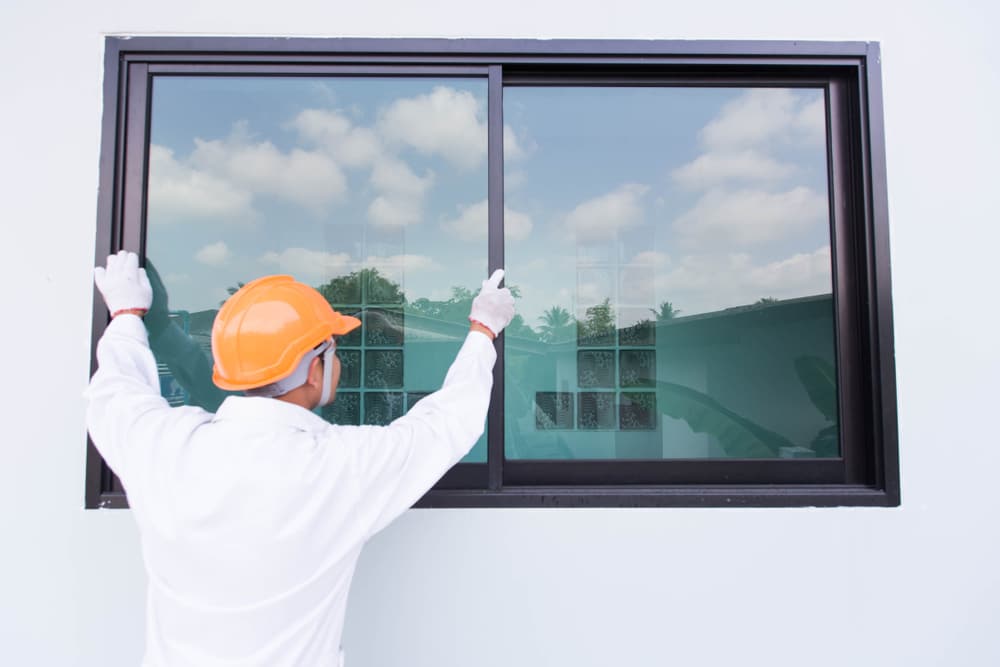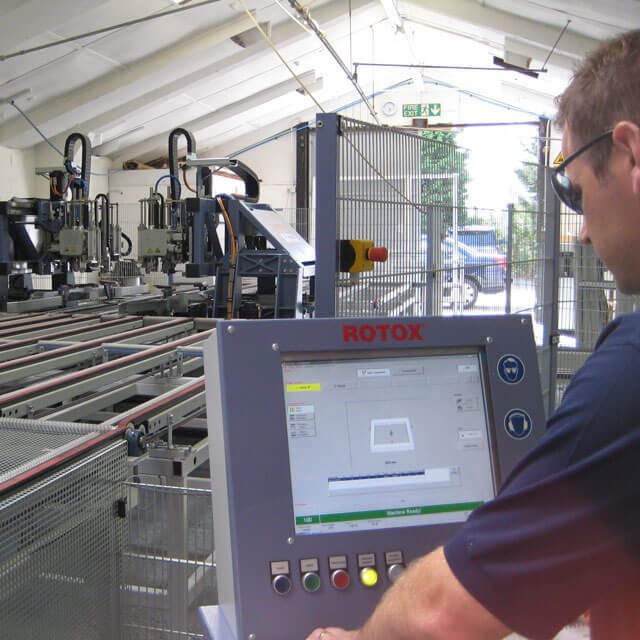On Thursday 16th April, it was announced that lockdown restrictions in the UK will continue for “at least” another three weeks. What does this mean for the fenestration sector? Is it time for business to consider, and indeed, plan a return to work?
In this article, we set out a point of view that it could be possible to return to work, nor should we criticise or guilt-shame those systems companies, manufacturers, installers and the related supply chain that continue to do so, under new even safer methods of working and an entirely new set of challenges for us all.
What’s happened up to now?
During the week of 23rd March, fabricators, installers, systems companies and others in the supply chain made the decision to close. Some made quick decisions and ceased operations. Others understandably took slightly longer to close down.
It’s important to remember a small business is able to close its doors faster than a large organisation. Sizeable companies with substantial operations, logistics, plant and transport cannot just shut the doors with an uncontrolled shutdown. A few on social media chose to criticise businesses taking longer to shut down – all they had to offer by way of meaningful debate was accusations of profiteering.
Emotions and feelings during the last three weeks have run high. Some hold the view that absolutely no work should be done until it is safe to do so. Others are respecting the need to continue to provide work to NHS and essential contracts.

Fenestration covers Residential and Commercial work.
The Government has not placed construction, including fenestration, under the same restrictions as bars, restaurants and leisure. The Government guidelines are available to see, even if they are open to interpretation. We respect and understand anyone’s decision to cease operations entirely too.
Industry bodies such as the Glass and Glazing Federation, Certass and FENSA have all repeated Government advice and guidelines. So have construction bodies and trade organisations. It is clear from this guidance that the intention is that construction and manufacturing should be continuing wherever possible.
It is a personal or business decision whether to follow these guidelines and continue trading or cease operations until business owners feel it is right to return to work.
How are installers adapting?
Installers quickly adapted to change. Installation businesses adopted online quoting and remote working. Some came up with innovative ideas to keep their customers engaged such as video chats using their showroom. We helped with setting up live chat for the first time, helpful hints for consumers to measure their windows at home, advice on helping them continue with their home improvement projects and more.
Others have done excellent work reaching out to potential customers through social media and we’ve seen incredible examples of genuine consumer engagement on social media.
We’ve seen installers securing work online and placing this business with their suppliers via their online ordering systems. We’ve been contacted routinely by installers asking where they can buy fabricated windows and glass as they have orders to place and contracts to carry out. You cannot blame any business for making the right decisions for them.
As it stands now, the guidance states that only essential repairs and maintenance should be carried out. In some circumstances, this could include replacement windows and doors, although it might not cover “improvement” work.
What we also know to be true is installers continuing to sell and take deposits for work. So we should not assume, as some do, that there is no retail work being done. Aside from essential maintenance and repairs to dwellings, there is plenty of self-build and complete home renovation continuing to happen. Again something those with less knowledge of our industry forget – it’s not just local replacement window work.
Bearing in mind also, that plenty of installers do work in commercial settings and non-dwelling environments. So they could very well be continuing to work.
With a further three weeks of restrictions, what is crucial is installers engage even better with potential customers. Even professional home improvement magazines, events and websites (yes they’re part of us) are doing what they can to keep the engagement going with potential customers.

How are trade manufacturers and suppliers adapting?
The trade manufacturer, systems company and component supplier face a different challenge. Can you run an operation while ensuring safety and social distancing advice?
What do you do if you have orders and contracts to fulfil? Particularly contracts for hospitals and accommodation for key workers. Once again some systems companies and manufacturers came under fire mainly by those that don’t know some basics.
- Systems companies also have related products supplied to other sectors, not just construction.
- Powder coating businesses don’t just paint window and door profile.
- Hardware companies don’t just supply window people.
- There are group companies serving other sectors and the entire group needs to remain open.
- Extruders extrude anything in aluminium or plastics for all manner of things not just for windows or construction.
We’ve seen several trade manufacturers over the last few days reaching out to the wider industry in an effort to gauge feeling and decide whether they should reopen. It’s been brilliant to see communication between the supply chain and even competitors. It’s a shame that this good work is not recognised by one or two industry opinion websites.
The fenestration and related industries are coming together. Everyone is wanting to do the right thing for their business, customers and their staff. Companies are seriously looking at how they can return to work while putting in the changes needed to keep everyone safe.
Some systems companies who closed have re-opened to service essential construction. Others have remained open because their work is providing profile to manufacturers and contractors involved in essential work and construction.
We’ve even been contacted by UK suppliers of products made abroad telling us they are open for business, albeit with showrooms closed. Do your research and you’ll also find installers saying they are open and very much trading.
The sad thing is, some of those working have chosen to remain quiet for fear of backlash and accusations of profiteering. Others hold the view that nobody is forcing them to close, orders are there to be fulfilled and remaining open for business, doing their best while observing Government advice and the advice of their trade bodies.
The other reality is there are installers with orders that would dearly love someone to make them. They have not stopped selling and are keeping their businesses going.
Manufacturers should listen to their customer base and the entire sector outside of their customer base and region to get the best possible picture of what’s going on and help them make a decision.
Has consumer demand dried up?
The subject of residential installations and consumer demand has created some heated debate. Our view is no two residential installers are the same and that the key is to carry out a continuous risk assessment to evaluate what work can be carried out.
There is a distinct difference between the local predominantly replacement window installer and those specialising in extensions, high-end work and architectural glazing.
It would be wise to remember that an installer mainly doing local replacement window work and rarely working with new extensions is not going to give you the same feedback as an installer predominately working with new extensions or high-end glazing. They serve different markets and as a result, see things differently.
The same applies to a manufacturer making mainly residential products compared to the one making windows for many other sectors. Their feedback won’t be the same either.
Emergency or Essential Work
The regulations make it clear that work can be carried out in residential properties for essential repairs. This exception applies for urgent work even if the occupiers are shielding (e.g. an elderly household). If the entire supply chain has completely shut down who will carry out this work?
Home improvements and why they’re not the same for everyone
It’s incredibly important that a continuous risk assessment is carried out and that nothing is done that could compromise someone’s health.
It’s difficult to imagine that two installers working in a two-bedroom mid-terrace property occupied by a couple with children could work in a way that follows the PHE guidelines. So you can see why there is a restriction on working in people’s homes. But what does other ‘window and door’ work look like in practice?
- An empty property being fully refurbished (i.e. not lived in) can be worked on.
- Construction sites (presumably including self-build residential projects) are explicitly mentioned as being ok to continue working. (presuming that everyone is following the PHE guidelines).
- Other types of housing such as council property, new/refurbishment for social housing, student accommodation.
- Many ‘retail’ installers also do commercial doors/shopfronts for non-dwellings, and we know right now where these are needed.
Why does this matter? If the above scenarios are taken as examples then there will inevitably be a drop off in demand for work that can be completed during the shutdown period.
More likely, any drop in demand is going to be caused by uncertainty in the minds of consumers. Probably driven by concerns about their household finances. But this is not true of every homeowner.
But there is nothing to say that a home improvement business can not engage with consumers, even to the point of carrying out a survey and confirming an order.
Therefore, it is irresponsible in our view to consider all installers as the same and therefore presume they’re all in the same boat. Their customer base, the nature of their work, the products they supply, the quality/price point of the market they serve are all different.
Again on social media especially, there is a message coming from some in our industry that all ‘windows are windows’ installers are the same with an at times, aggressive narrative from some with little understanding or experience just how broad-based fenestration truly is.
- While it is true many people have put spending on hold for employment reasons, others have every intention of continuing as soon as possible after restrictions are lifted.
- It’s important to draw a distinction between general replacement window work and the new extension market. These customers are different as are the companies that service them.
Windows and doors also go elsewhere
We’d also be wise to remember other businesses needing windows and doors as well as related suppliers to these industries. Our systems companies and related suppliers are needed by:
- Manufacturing of temporary homes
- Windows for park homes, boats and caravans
- Secondary glazing
- Fire screens and partitions
- Plant room doors, steel and commercial products
- Fire/Bomb/Protection systems
- And many many more
What does the data tell us?
Any business monitoring their website analytics during the last week of March will have seen a cliff-edge drop in their traffic and enquiries. Even more exaggerated than the usual declines over Christmas and the recent political / Brexit related events.

However, there’s undoubtedly been a slow return, not quite to “normal” levels but the volume of search traffic has definitely increased. We have seen this on this site, as well as broad-ranging websites that we manage. Insight Data has also reinforced this view in a post recently shared on LinkedIn and mentioning a consensus amongst manufacturers of wanting to return to work.
Some trade fabricators operating online ordering systems tell us they have so many orders backed in their systems that they are considering a return to work to handle these orders. And let us not forget the amount of stock some businesses piled up during the Brexit uncertainty. Yes, we need our supply chain but some have ample material to get through.
Is it possible for installers to return to work?
During any sort of crisis situation it is understandable that the ill-informed might retreat into a bubble and start using simple arguments to address complex issues; often based on a small sample of self-selected data.
For any installer, fabricator or manufacturing business there are decisions to be made that are difficult and complex. And ought to be based on as much fact as possible without being confused by misplaced emotional pressure. These are difficult times and it should be possible to make business decisions without having to worry about baseless accusations of profiteering or insensitivity.
There is no one size fits all here. Every window factory or general manufacturer is different. Window manufacturers and trade suppliers face different constraints. Factory size, layout, manufacturing setup and their own material supply chain are all considerations.
Also worth considering just because a particular fabricator or systems company has closed production, it could be a decision based on the volume of business that makes it viable to operate a production line. Which may of course change if the volume of business changes, just like it would for any manufacturing business.
Government has given guidance on what it feels manufacturing and construction businesses should be doing at the moment. As a collective, we should all respect the right of businesses to make decisions based on that guidance without making assumptions about individual motivations or presume to know better than them.
The question of when or how to open for business is something for business owners/managers and their employees to reflect on, and for customers to decide who they trust to do business with.
And for those that can work from home they must, restrictions observed and everyone continuing to stay safe.
What do you think?
The point here is to engage in constructive and informed debate about the current situation and the best way out of it. Please add to the discussion and leave a comment below:










